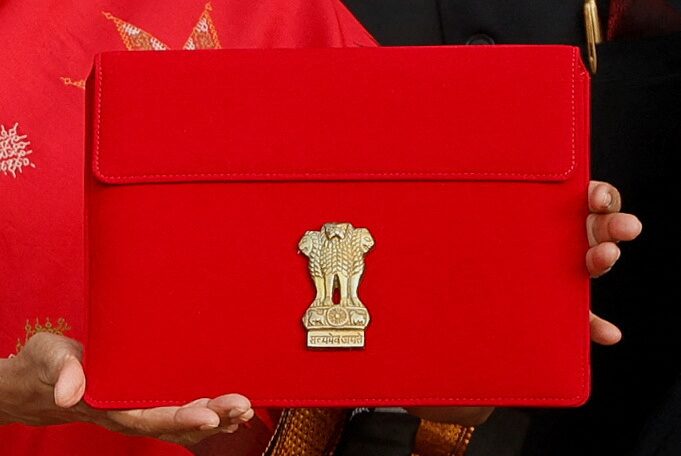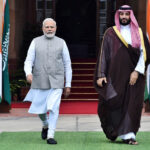Indian Finance Minister Nirmala Sitharaman presented the Union Budget for the financial year 2025-26 in Parliament today (February 1). This marks her eighth budget, making her the first Finance Minister to achieve this milestone. It is also the first budget of Indian Prime Minister Narendra Modi’s third term.
The budget focuses on transformative reforms in six key areas: taxation, financial sector, power sector, urban development, mining, and regulatory reforms. These reforms are aimed at driving economic expansion, improving infrastructure, and fostering sustainable development.
“Together, we aim to unlock India’s potential under the visionary leadership of Prime Minister Modi,” said Sitharaman. “This budget is dedicated to accelerating growth and securing inclusive development while empowering India’s middle class.”
Key Highlights of Budget 2025-26
Income Tax
- No Income Tax payable up to $13,841 under the new regime.
- New Income Tax Bill to be introduced next week.
- Revised tax slabs across the board; salaried individuals earning over $27,683 to pay 30% tax.
- Tax return filing limit increased to four years from two years.
- Senior citizen interest income threshold increased to $1,153.
- TDS on rent raised from $2,768 to $6,921.
- TCS on education-related remittances removed if funded through specified loans.
Capital Expenditure (Capex)
- Revised FY25 capex at $117.3 billion.
- Approximately $17.25 billion in interest-free loans for capital expenditure.
- Public-Private Partnership (PPP) expansion, with ministries proposing three PPP projects each.
Cess and Tariffs
- Customs tariff structure streamlined to encourage domestic manufacturing and exports.
- Further simplification of tariff rates, with seven more rates eliminated.
- Key exemptions:
- Basic Customs Duty (BCD) fully removed on cobalt powder, lithium-ion battery waste, and 12 critical minerals.
- 37 new medicines and 13 patient assistance programs added to the exemption list.
- BCD on frozen fish paste reduced from 30% to 5%.
- BCD on interactive flat panel displays increased from 10% to 20%.
Financial Reforms
- FDI limit in insurance raised from 74% to 100%.
- Revamped central KYC registry to ease compliance.
- Investment Friendliness Index to be introduced for states.
Infrastructure & Urban Development
- $11.53 billion Urban Challenge Fund to transform cities.
- Affordable housing: 40,000 new units to be completed in FY26.
- SWAMI Fund 2 launched with $1.73 billion.
Nuclear Energy
- Nuclear Energy Mission to develop 100 GW of nuclear power by 2047.
- $2.31 billion R&D initiative for Small Modular Reactors (SMRs).
MSMEs & Startups
- Customized credit cards for MSMEs to improve access to finance.
- Investment and turnover limits raised by 2.5 times and 2 times, respectively.
- Expanded Fund of Funds (FoF) initiative to aid startups.
Agriculture & Farmers
- Han Dhanya Krishi Yojana to boost crop productivity in 100 districts.
- Six-year mission for pulses self-sufficiency, focusing on tur and masoor.
- Makhana Board to be established in Bihar.
- Kisan Credit Card (KCC) loan limit increased from $34.60 to $57.68.
Leather & Footwear Industry
- New scheme to support non-leather and leather footwear manufacturing.
- Targeting 22 lakh new jobs and boosting exports to $1.27 trillion.
Investing in People
- Nutritional programs for 8 crore beneficiaries under Sashakt Anganwadi & Poshan 2.0.
- Infrastructure expansion in IITs and five new National Centres of Excellence for skilling.
- e-Shram portal identity cards for 10 million gig workers.
Power Sector Reforms
- Incentives for states to improve electricity distribution and transmission.
- Additional 0.5% GSDP borrowing allowance for reform implementation.
Aviation & Connectivity
- UDAN scheme expansion to 120 new destinations.
- New Greenfield airports planned in Bihar.
Fiscal Deficit Targets
- Revised fiscal deficit for FY25: 4.8%
- Fiscal deficit target for FY26: 4.4%
The Budget 2025-26 presents a roadmap for economic expansion, infrastructure modernization, and inclusive growth, aligning with India’s vision of becoming a ‘Viksit Bharat’ by 2047. The proposed policies reflect a strong commitment to taxation reforms, ease of business, and social welfare, positioning the nation for sustained progress in the coming years.






